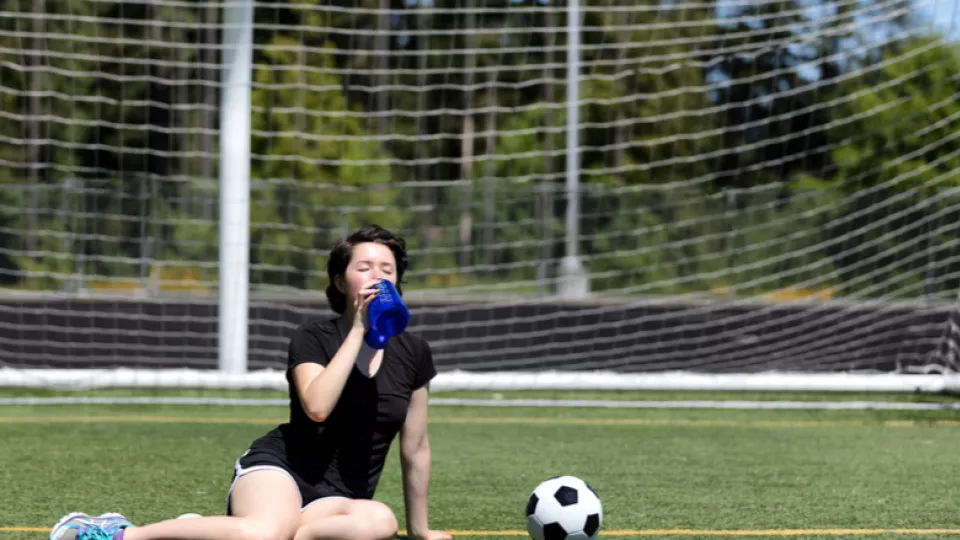
For Young Athletes, Eating Healthy and Drinking Water Is Key
Parents work hard to make sure their kids stay hydrated and eat a well-balanced and nutritious diet. For student athletes, that’s even more important. Here is some helpful information about proper fuel for your young athletes from our friends at the Children’s Hospital Los Angeles Sports Medicine Program.
Hydration
Drinking enough water is crucial to keeping athletes healthy and at the top of their game. Proper hydration helps regulate the body’s temperature to perform at the optimal level.
Don’t wait until athletes say they are thirsty to encourage hydration. A dehydration level of 3-5 percent stimulates thirst, but dehydration of just 1 percent or more can lead to:
- Decreased athletic performance
- Decreased blood flow to skeletal muscles→ muscular injury
- Decreased quality of synovial/joint fluid→ articular cartilage injury and muscle cramps
- Increased risk of heat exhaustion/stroke→ death
And don’t just hydrate during athletic activities. For optimal performance, athletes should hydrate all day long to keep their bodies in peak condition.
Keep your fluid source handy. Keeping a filled water bottle nearby is a constant reminder to continually hydrate! As a good rule of thumb, use the following age-based guidelines:
- 9-12 year olds should drink 2 liters of water per day (10 large cups of water).
- Add 3-8 ounces every 20 minutes if exercising.
- 13-18 year olds should drink 3 liters of water per day (14 large cups of water).
- Add 10-15 ounces every 20 minutes if exercising.
Nutrition
A young athlete’s diet should be made up of:
- 55-60 percent carbohydrates
- This is fuel for sports performance! It helps maintain body weight, replenish glycogen stores, and build and repair tissues. Stick with complex sugars like whole-grain breads, beans and vegetables, rather than simple sugars like high-fructose corn syrup or fruit juice concentrate.
- Add 5-10 percent for endurance athletes.
- 10-15 percent protein
- This is essential for growth and repair, though it is a poor source of fuel.
- Increase this slightly for strength-trained athletes.
- Less than 30 percent fat (and less than 10 percent saturated fat)
- Fat is an excellent fuel. Look for healthy fats in avocados, cheese, olive oil, seafood and nuts.
- The best source of energy is from natural food and a well-balanced diet. Dietary supplements are not regulated for safety and therefore can contain harmful and illegal substances, risking your health and eligibility for sports participation.
Take care and keep your athletes in the game!


